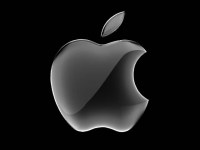So let us talk about Innovation.. Uh why ? Coz in my library, on top of the stack, is a book called – Dealing with Darwin. It is an interesting read. Central to its theme is the notion of sustained innovation in large technology enterprises – the HPs’, Ciscos’, Microsofts’ and the likes. I am just a few pages into the book and I have come across some very interesting content on technology adoption life-cycle, types of innovation, underlying drivers in growth markets etc.
One of the concepts that has stuck with me and I cannot help but apply it to products around me – is return on innovation. The author suggests that there can be four types of returns – Differentiation, Productive, Neutralization and Waste. And the two that interest me most are – differentiation and neutralization.
iPhone is an example of differentiation. By launching the first touch screen phone with PDA capabilities, iPhone became the preferred choice for a certain market segment, giving Apple a pricing power well above the actual cost. On the other hand, all the other vendors that followed Apple in the touch screen phone market, did nothing more than just neutralizing the market. They eliminated differentiation by catching up with Apple.
Thus companies need to innovate at various points, sometimes to create a differentiation and other times to just catch up. In my opinion, by launching the iPad, Apple ended up neutralizing the market. There are no awesome features in iPad for me, to convince me to choose it over another e-book reader. In fact being the book geek that I am, I’d rather buy a Kindle – a dedicated device. No distractions. Who needs a magnified version of an iPhone to simply read a book. So this might end up being an example of an attempt to create differentiation, but settling with neutralization. (disclaimer – it may be too soon to make this judgement. But Apple really needs to beef up this product to make a Mac fan like me spend the $500 on this product)
And one can argue , that iPad is a tablet, and not just an ebook reader – and I would argue, that it does far less than what a tablet should do. So it really does not qualify to be tablet on its own.


A good article reflecting the debate I address in this post. http://www.nytimes.com/2010/03/29/technology/29apple.html?src=me&ref=technology
To quote, “But even in those best-case situations, the iPad most likely will not change Apple’s overall financial picture anytime soon. A. M. Sacconaghi Jr., an analyst at Sanford C. Bernstein & Company, predicts that the iPad could contribute about 28 cents a share to Apple’s bottom line in its first full year of sales. The iPhone, by contrast, is responsible for about $8 of earnings a share.”
Precisely my point
LikeLike